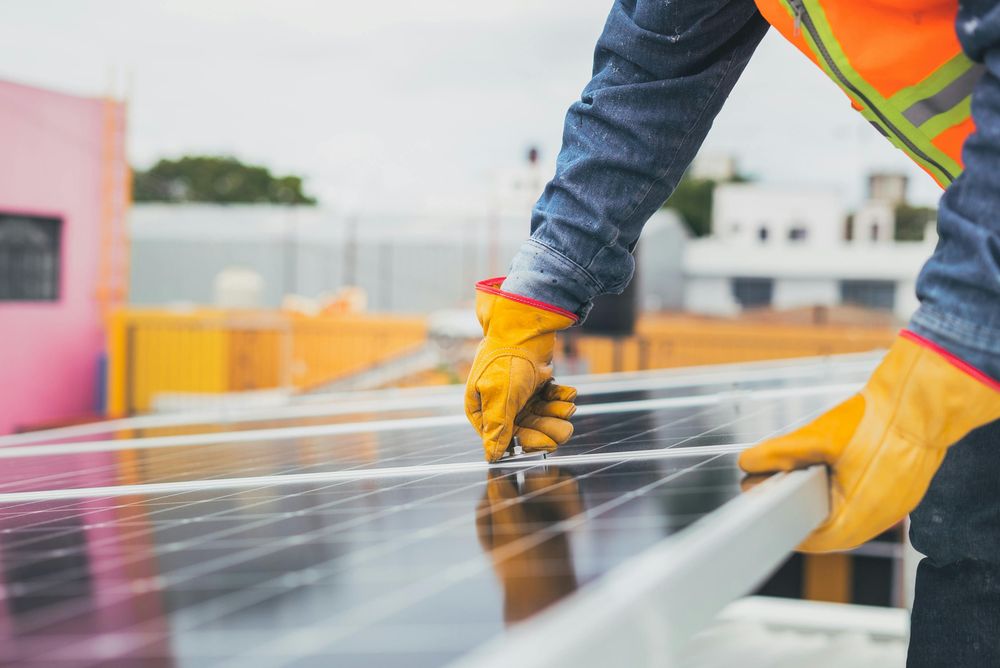Boost Solar Panel Efficiency: Tips for Maintaining and Monitoring Your System
Riddhi Kumar • 2024-07-11 • 6min read
Solar energy is one of the fastest-growing renewable energy sources, with solar panel installations increasing year after year. As more and more people turn to solar power to reduce their carbon footprint and save on electricity costs, it is important to ensure that your solar panel system is running at its maximum efficiency. In this guide, we will discuss solar panel efficiency, factors that affect the solar efficiency rate and most importantly, tips for maintaining and monitoring your solar panel system to boost its efficiency.

Solar energy is one of the fastest-growing renewable energy sources, with solar panel installations increasing year after year.
As more and more people turn to solar power to reduce their carbon footprint and save on electricity costs, it is important to ensure that your solar panel system is running at its maximum efficiency.
In this guide, we will discuss solar panel efficiency, factors that affect the solar efficiency rate and most importantly, tips for maintaining and monitoring your solar panel system to boost its efficiency.
Solar Panel Efficiency
Solar panel efficiency refers to the amount of sunlight that can be converted into usable electricity by a solar panel. The higher the efficiency rate, the more electricity your system will produce from the same amount of sunlight.
The average efficiency rate for most solar panels on the market is around 15-20%, with some premium panels reaching up to 23%.
To learn more about solar panel efficiency, check out this article on solar panel efficiency over time.
Factors Affecting Solar Panel Efficiency
Want to learn how to increase solar panel efficiency for maximum solar panel output? First, You need to understand the factors that affect it.
Here are some factors that affect Solar Panel Efficiency:
Type of Solar Panels
One factor that affects solar panel efficiency is the type of panels you are using.
The two most common types of solar panels on the market are monocrystalline and polycrystalline.
Monocrystalline panels tend to have a higher efficiency rate as they are made from single-crystal silicon, while polycrystalline panels use multiple pieces of silicon and are slightly less efficient.
Angle and Direction of Solar Panels
The angle and direction of your solar panels play a crucial role in their efficiency.
Ideally, solar panels should be installed at an angle that matches the latitude of your location to receive maximum sunlight exposure.
Additionally, having your panels face true south (in the Northern Hemisphere) or true north (in the Southern Hemisphere) also helps increase efficiency.
Make sure you are getting solar panels installed by a trusted and experienced professional who can help determine the best angle and direction for your panels.
Shading
Another factor that affects solar panel efficiency is shading. It is important to get solar panels installed in an area with minimal shade throughout the day.
Even a small amount of shading, like from a tree or chimney, can significantly reduce the efficiency of your solar panels.
Consider trimming trees or removing any obstacles that may cast shadows on your panels to ensure maximum efficiency.
Tips for Maintaining an Efficient Solar Panel System
Now that you understand the factors that affect solar panel efficiency, it is crucial to maintain your solar investment to ensure it continues to operate at its optimal capacity. Here are tips for maintaining an efficient solar panel system:
Regular Cleaning
Keeping your solar panels clean is essential for maximum efficiency. Dirt, dust and debris can accumulate on the surface of your panels and block sunlight from reaching the solar cells. Be sure to clean your panels regularly, especially after heavy rain or windy days.
Monitor Performance
Regularly monitoring your solar panel system's performance can help you identify any issues that may be affecting its efficiency. Keep track of your system's energy production and compare it to previous months' data.
If you notice a significant decrease in production, it may be time to inspect your panels for any damage or malfunctions to components like inverters, solar cell, batteries, etc.
Check for Damage
Inspecting your solar panels for damage is crucial in maintaining their efficiency. Look out for any cracks, scratches or other signs of wear and tear on the surface of your panels. If you notice any damage, contact your installer for repairs or replacement.
Trim Trees and Vegetation
As mentioned earlier, shading can greatly impact solar panel efficiency. Regularly trim trees and vegetation surrounding your panels to ensure they receive maximum sunlight exposure throughout the day.
Schedule Professional Maintenance
In addition to regular cleaning and monitoring, it is also important to schedule professional maintenance for your solar panel system. This includes checking all connections, wiring, and components to ensure everything is functioning properly. A professional can also perform any necessary repairs or upgrades to keep your system running at its best.
By following these tips for maintaining and monitoring your solar panel system, you can ensure that your panels are operating at their maximum efficiency, ultimately leading to more energy savings and a longer lifespan for your system.
Regularly maintaining and monitoring your solar panel system is not only beneficial for power generation efficiency but also for the safety of your home and family.

Strategies to Improve Solar Panel Efficiency
As more and more people turn to installing solar panels for their homes, it is essential to understand how to improve the solar panel performance. You can maximize your investment in solar energy, reduce your carbon footprint, and increase overall energy production at the same time by keeping some things in mind like:
Selecting High-Efficiency Panels
Investing in high-quality, high-efficiency solar panels can truly transform your energy savings! High-efficiency solar panels are designed to capture more sunlight and convert it into electricity, resulting in higher energy production. While they may come at a higher initial cost, these panels can also lead to greater long-term savings.
Among the 3 primary types of solar panels– monocrystalline, polycrystalline and thin film, monocrystalline panels are known to have the highest efficiency rates.
Optimal Installation Practices
Proper installation is crucial for the efficiency of your solar system. It is essential to hire a reputable and experienced solar installer who follows industry best practices when installing your panels.
This includes finding the optimal angle and direction for your specific location, ensuring proper wiring and connections, and using quality materials.
Using Solar Trackers
Solar panel tracking systems are designed to adjust the position of your panels throughout the day to ensure maximum sunlight exposure. These systems can increase efficiency by up to 25% compared to fixed panels.
While they may come at an additional cost, they can significantly improve energy production, especially if your household energy consumption is high or in areas with variable weather patterns.
Conclusion
In conclusion, understanding the factors that affect solar panel efficiency and implementing regular maintenance and improvement strategies can greatly enhance the performance of your solar panel system.
By selecting high-quality panels, proper installation practices, monitoring and troubleshooting any issues, and using additional technologies like solar trackers, you can maximize your energy efficiency and savings, and contribute to a more sustainable future.
So go ahead and invest in solar energy with confidence knowing how to keep your panels running at their best!